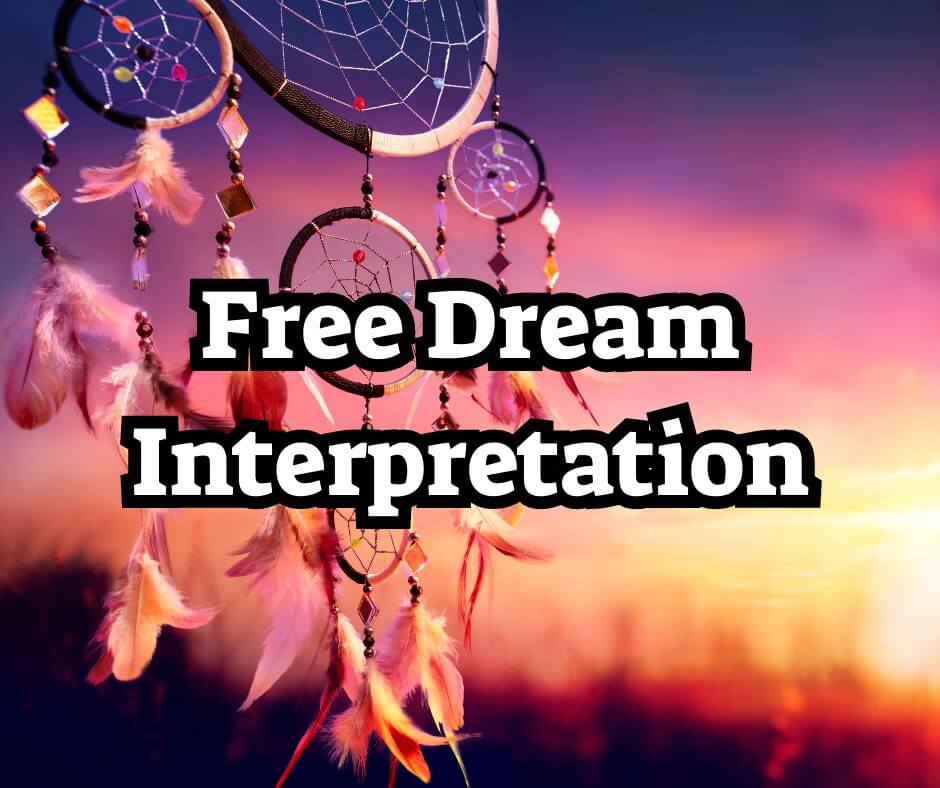
Have you ever woken up captivated by a dream but unsure of its meaning? I offer a free dream interpretation service! For a private response, email your dream to contact@dreammerchant.shop. For a public response, please leave a comment at the bottom of this page.
Welcome to Dream Merchant’s Shop, your trusted partner in exploring the fascinating world of dreams. Dreams can be a rich source of insight, filled with mysterious symbols and enigmatic narratives. Now, we’re excited to offer a free dream interpretation service to help unravel the stories that your subconscious mind is trying to tell.
This is not an algorithmic service offering generic interpretations. Instead, a human expert specializing in dream interpretation will thoughtfully analyze your dreams.
With years of experience in the fields of psychology and dream analysis, we are here to provide personalized interpretations of your dreams. Our approach is grounded in scientific research and various schools of dream analysis, from Freudian and Jungian theories to more contemporary cognitive and neurological perspectives.
Feedback from People whose Dreams I Interpreted
Thank you, your response has truly shifted my perspective and alleviated my fears. Thanks once more! ☺️
Thank you for this; it’s very insightful and helpful to know that this contributes to healing.
That’s incredible, man! I think you’ve hit the nail on the head. Everything you said resonates deeply because it accurately reflects what I’m experiencing right now. That’s mind-blowing!! Thank you so much!!!
This is amazing to read; thank you so much.
This actually makes a lot of sense! Thank you! It really helps me feel better!
I want to express my sincere gratitude for your insightful interpretation. It was incredibly thorough and has significantly alleviated my feelings of guilt regarding that dream. I genuinely woke up feeling like a terrible person, but now I feel much better.
How does my Free Dream Interpretation work?
Simply share your dream with us, providing as much detail as possible. The more vividly you can recall your dream, the better we can help interpret it. Once submitted, we will delve into your dream, examining the symbols, themes, and patterns. Our goal is not just to give a one-size-fits-all interpretation but to provide a unique, insightful understanding that resonates with your experiences and feelings.
Remember, dreams are personal, and so are their interpretations. That’s why our service is tailored to your individual journey. And remember, this is a free service! We believe everyone should have the opportunity to understand their dreams and learn from them.
So, whether you’ve dreamt of flying, being chased, or something totally out of the blue, let us help you navigate the dream world. Welcome to the beginning of your dream interpretation journey with the Dream Merchant. Uncover the hidden meanings of your dreams today. We’re excited to journey with you into the realms of the unconscious.
About Dream Interpretation
For as long as we have dreamed, we have tried to understand the meaning of our dreams.
Over the ages, many meanings have been ascribed to various dream elements, as is apparent when checking out any dream dictionary.
Recently, psychologists in the West have tried to approach dream interpretation by means of the scientific method, coming up with different theories regarding both why we dream and the meaning of our dreams.
This scientific endeavor, however, has yet to explain the phenomenon of dreams thoroughly.
Dream interpretation theories include:
Freud & Psychoanalysis
Sigmund Freud regarded dream interpretation as “the royal road to a knowledge of the unconscious activities of the mind.”
In most dreams, we combine “day residue” or daily events with the fulfillment of wishes we cannot fulfill in the waking state of consciousness.
Any wish we had the previous day and could not fulfill remains within us as stuck energy. We can suppress it so that it doesn’t interfere with our daily functioning, for example, if the wish cannot be fulfilled due to social conventions. This energy can be suppressed, but it remains in the unconscious level of the mind where it waits to be expressed, experienced during the night, in dreams, where there is no convention, morality, or ego.
However, even dreaming about some of our deeply unconscious wishes could be highly upsetting; therefore, Freud postulated a “censor” within us distorts our wishes and codes them symbolically into non-disturbing dream material. In this way, the energy is at least partially released, yet sleep is undisturbed. If this mechanism fails, the dream can become disturbing, resulting in a nightmare or anxiety dream.
In Freudian dream interpretation, the symbolism is analyzed, which allows us to identify the unconscious wishes that are trying to become fulfilled. Then they can be released under the guidance and support of the psychoanalyst, thereby freeing any tensions and neurosis they may have created in the patient.
Carl Gustav Jung
Jung continued where Freud left off, expanding his theory of why we dream and how to interpret dreams appropriately.
If Freud focused on the pathological side of dreams and personal unconsciousness, Jung spoke of the broader meaning of dreams and collective unconsciousness.
Jung recognized that there are archetypes, dream images with universal meanings, common in dreams across all humans.
While Jung’s method of dream interpretation appears similar to the traditional methods of dream dictionaries, like Freud’s method, it relies heavily on the subjective interpretation of the dreamer himself.
Adler
Adler also developed a theoretical and clinical approach to dream interpretation. While Freud centered on the internal realm, Adler spoke of the influence of the social realm.
While Freud saw libido as our main driving force, Adler recognized the importance of politics.
Clinical Sleep Science
In the realm of clinical sleep science, dream interpretation plays a pivotal role, particularly when addressing patients’ concerns regarding their dream content.
Drawing upon the concept of thematic continuity and the continuity of emotions, sleep specialists strive to connect the dream narrative to the dreamer’s waking experiences. This is achieved by discerning the underlying emotional and behavioral patterns within the dream, which often mirror, albeit exaggerated, present in the patient’s real life.
To illustrate, a dream involving being pursued by a creature might symbolize feelings of fear or panic coupled with avoidance behavior. In such instances, the sleep specialist would engage the patient in discussing potential parallels in their waking life, such as whether they might be evading a certain situation or individual.
By doing so, the dream becomes a reflective tool, offering insights into the emotional landscape of the dreamer’s waking life.
Why We Dream?
Dreaming has a different function in early societies. When a dream occasionally happens in early societies, the dreamer is recognized as a shaman, and his dreams are regarded as prophetic and believed to bring important messages to the community.
Why is there a difference between uncivilized people and modern societies?
The former does not repress as much as the latter. The unconscious mind of early people is much smaller than modern people’s; they live naturally without repression.
Animals, too, do not repress and hence do not need to dream.
Repressing any energy, for example, an unfulfilled desire, results in dreaming. The repressed energy enters the unconscious mind, and when your guard’s down while you’re sleeping, it is released and manifests as dreaming. Finally, in the dream, the desire can be fulfilled, and the energy can be released.
For example, after a day of fasting, eating dreams may arise. If one abstains from sexual activity, one will likely experience sexual dreams.
And the more one represses, the more well-mannered one becomes; the larger the unconscious mind becomes.
Nightmares result from very strong repression.
An awakened individual, like animals and early people, does not dream.
However, the difference between enlightened beings and early people is fundamental. The latter conforms to all their desires unconsciously and naturally, while an enlightened person does so in full consciousness.
An enlightened person does not care about respectability and what others think of him. Therefore, he can wholeheartedly do anything he wants to do without thinking of the consequences. Nothing is left incomplete. The life of a Buddha, or an awakened one, is intense and total. With no repressions, dreams simply aren’t created.
Dreamwork
Considering all the above, what kind of work can be done with dreams?
Dreams can be worked with in various ways. For example, astral projection, lucid dreaming, and dream yoga require strong dream recall; otherwise, these experiences may not be remembered. Dream journaling, the act of writing dreams upon awakening from them, can improve dream recall.
Psychologically, it is possible to use dreams as a reservoir of uncensored mental material to work with to understand oneself. No dream dictionary or outside interpretation will suffice, however; one must figure out what each dream element represents in one’s mind.
To overcome nightmares, working with dreams can also be helpful.
While the shaman has an important role in early societies due to his use of dreams for divination, in modern societies, the psychoanalyst has power over dreams because he can help his clients analyze them.
As a psychotherapeutic tool, dreams can indeed offer the therapist easier access to the patient’s inner world. By working with the insight that can be derived from dream interpretation, one can become more natural and less repressive.
However, psychologists should not waste their whole lives interpreting others’ dreams… What is needed is consciousness.
Free Dream Interpretation: Epilogue
Ultimately, dreams should be transcended, not simply analyzed, by releasing the energy of the unconscious mind and no longer storing energy in the unconsciousness. This can be done through the practice of meditation. By simply knowing that a dream is merely a dream, the dream is transcended, and the energy is released.
This brings to mind a story about a Zen master who woke up one morning and said to his disciple:
“I had a dream last night. Would you interpret it for me, what it means?”
The disciple said:
“Wait! Let me bring a cup of tea for you.”
Taking the tea, the master then asked:
“Now what about the dream?”
The disciple said:
“Forget about it, because a dream is a dream and needs no interpretation. A cup of tea is enough interpretation – awake!”
The master said:
“Right, absolutely right! If you had interpreted my dream I would have thrown you out of my monastery, because only fools interpret dreams. You did well; otherwise, you would have been thrown out completely, and I would not have looked at your face again.” (Source: Osho)
Dreams offer a window into our deepest selves. What will yours reveal?
Dive deeper into the world of your dreams. Share your dream with us below and embark on a journey of understanding and discovery.

